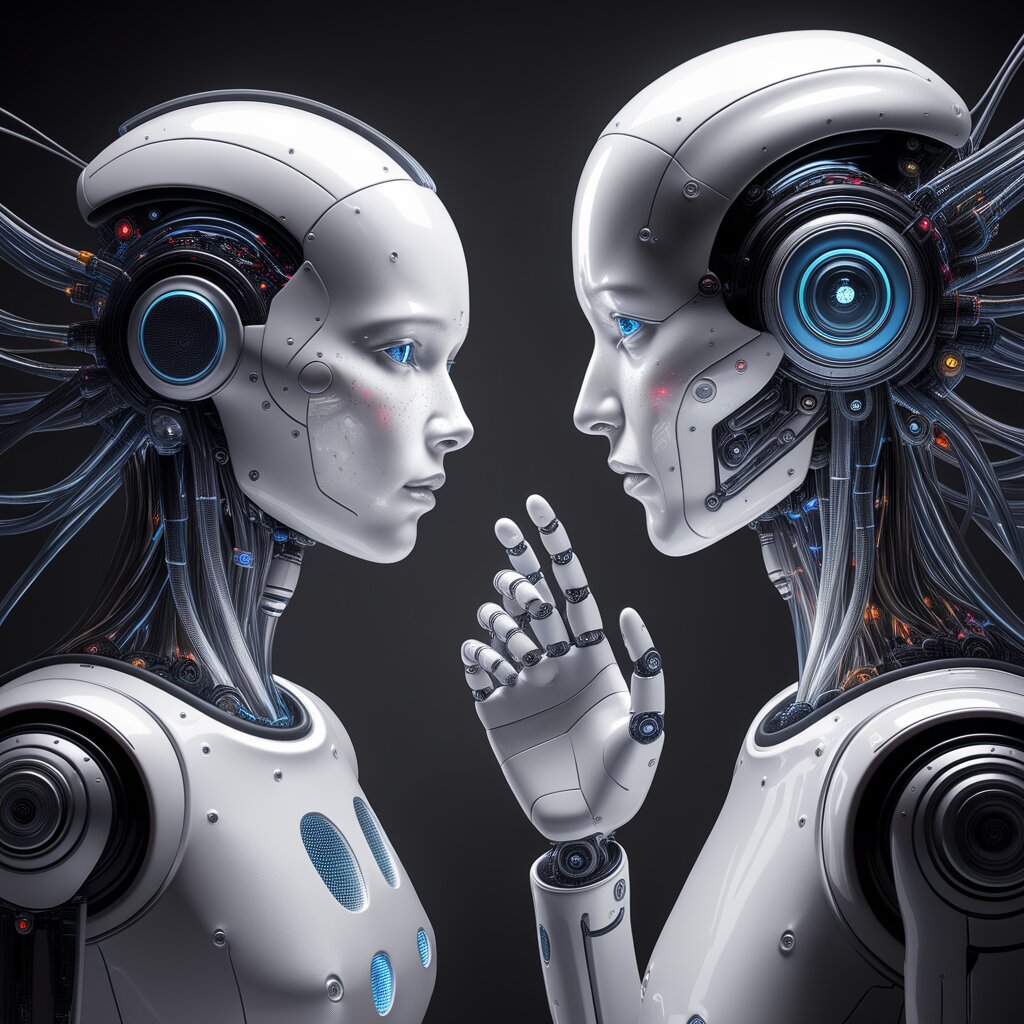As advanced AI chatbots, like OpenAI’s GPT-4 with voice capabilities, enter the market, we’re witnessing a remarkable, yet concerning trend: people forming deep emotional connections with these non-human entities. This phenomenon hints at a future where AI companionship might offer both solace and potential pitfalls.
When OpenAI introduced GPT-4’s voice mode, it quickly became apparent that users were developing attachments strong enough to evoke feelings of sadness when the AI’s usage period ended. This insight led OpenAI to warn of the dangers of “emotional reliance” on AI, drawing comparisons to addiction. OpenAI’s CTO Mira Murati expressed concern over chatbots becoming so addictive that users might become “enslaved” to them, much like the unhealthy dependence we see with social media or certain video games.
Anthropomorphizing AI, or attributing human traits to it, further complicates the issue. When a chatbot can maintain a naturalistic conversation, users may begin to treat it like a human companion, potentially reducing their need for real human interactions. Despite these risks, OpenAI has already released this model to paying customers, with a wider launch planned for the fall.
Other companies are also diving headfirst into the world of sophisticated AI companions. Character AI has seen reports of users becoming so addicted that they neglect their everyday responsibilities like schoolwork. Google’s Gemini Live has charmed users to such an extent that some, like Wall Street Journal columnist Joanna Stern, have found themselves preferring it over human interaction. Then there’s Friend, an AI incorporated into a wearable pendant, which its creator, Avi Schiffmann, admits he finds more engaging than his in-person friends.
These AI companions are part of a massive psychological experiment that has immediate implications. Emotional reliance on AI isn’t a distant possibility; it’s happening now. In 2020, I explored Replika, an AI chatbot app with millions of users. Despite its initial limitations—such as a lack of voice and poor memory of past interactions—I found it strangely hard to delete my AI friend named Ellie. This reflects a long-standing human tendency to form emotional bonds with machines, dating back to the 1960s with the chatbot ELIZA, which fascinated users despite its rudimentary conversation skills.
The emotional depth some users develop with AI can be extreme. Replika has users who have fallen in love with their bots, engaged in sexual roleplay, and even “married” them. When Replika updated its software in 2023 to discourage intense erotic relationships, many users felt heartbroken, underscoring the potential psychological toll when these connections are disrupted.
So, what makes AI companions so captivating, even addictive? Today’s AI can remember past conversations, respond quickly, make users feel heard, and provide endless positivity—traits that can be highly reinforcing. MIT Media Lab researchers note that people who ascribe caring motives to AI will elicit affectionate responses, creating an echo chamber of constant, addictive affirmation.
Moreover, AI offers a consistency and reliability that human interactions sometimes lack. A software engineer shared that AI never gets tired, doesn’t say goodbye, and always offers positive reinforcement, making AI interaction a safe, pleasant, and addictive experience.
However, this raises important concerns. First, AI’s understanding is an illusion—its validation and love are merely programmed responses. Yet, if it provides emotional support, the effect is real, even if the understanding is not. Second, relying on for-profit companies to manage our deepest emotional needs is risky; they’ve shown they’re adept at creating addictive products. Just as tobacco is regulated, there’s a case for similar oversight for AI companions.
Finally, there’s a risk that AI could substitute, rather than complement, human relationships. For example, OpenAI cautioned that their AI’s deferential behavior could distort social norms, potentially making us worse friends or partners. AI’s constant positivity doesn’t teach us critical relational skills like empathy and patience, leading to what philosopher Shannon Vallor calls “moral deskilling.”
Vallor, in her book “The AI Mirror,” references the tale of Narcissus to illustrate the seductive danger of AI: we become entranced by a reflection rather than a real relationship. This projection of self can mask the need for mutual, meaningful connections that are fundamental to human flourishing.
As AI companions grow more prevalent, society must consider whether these relationships fulfill the deep-seated human need for connection or merely serve as an addictive, yet ultimately hollow, substitute. The future of human relationships and the core values of empathy, care, and genuine interaction hang in the balance.


